As an avid reader, you already understand how a visually compelling cover can serve as a book’s number one marketing tool. As a book consumer, you’ve experienced firsthand the power of good design in action when eye-catching covers have compelled you to take the next step. Now, as an aspiring author, you’ve come to realize that it’s one thing to know how powerful a cover design can be, but quite another to execute a creative book cover idea for your upcoming book.
Creating an eye-catching cover design involves both artistic talent and marketing strategy. For example, one book’s fetching cover could be a total flop when used in the wrong genre. If a cover design doesn’t fit the genre, chances are it will be passed by. A successful cover design is tricky to accomplish yet represents a significant piece of the marketing success of your book.
While book cover inspiration is the focus of this blog, a writer who ignores the quality of their manuscript is at their peril. A stunning cover may help sell your self-published book, but if the content is not polished, poor reviews will follow—the death knell for authors. So, yes, continue reading to learn all about creative book cover ideas, but meanwhile, do consider developmental editing to truly deliver the goods to your reader.
11 Ideas for Self-Published Book Covers
The wonderful thing about book cover design is the huge range of options to consider for your own book. Quite literally, the sky’s the limit. As long as your self-published book cover is well designed, you can push the boundaries and explore the possibilities. Consider these artistic book covers as sources of inspiration:
Minimalist
Clean, simple designs can pack a powerful punch. With adroit use of font and color, a book cover will convey the interior theme. A minimalist design forces the consumer to wonder about the book’s content, as so little information is provided. This causes the inquisitive reader to take a deeper look at the book details or sample pages, which can result in a sale.
Take a look at these two minimalist book cover examples:

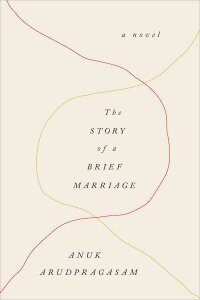
Black and White
Despite its simplicity, black and white cover designs can be impactful as self-published book covers. Black and white covers are excellent options for a variety of genres within the nonfiction category, but are also a surprisingly good option for fiction as well. Never assume that the absence of color equates to a boring book cover. No way!
The bold use of black and white in cover design is a perennial attention grabber. Look at these examples of gorgeous black and white book cover ideas:


Dramatic
When it comes to fiction, nothing beats a dramatic self-published book cover. Drama sells. A dramatic cover will trigger emotions through the use of imagery, font, and color.
Consider these examples of dramatic book covers:


Nostalgic
Amid the clamber among many authors to appear modern and unique, sometimes a retro vibe will jump out from the crowd and grab a reader’s attention. Artistic elements that speak to an easily identifiable bygone era, such as post-WWII mid-century, will evoke a nostalgic emotional response.
Here are some great examples of that approach:

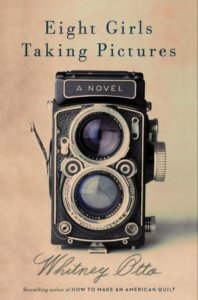
Modern
Creativity unleashed can produce some wild and intriguing book cover inspiration. Modern book covers can be fresh, whimsical, and intriguing for the author looking for a unique take. Clean, minimalist cover designs are definitely eye-catching. The use of sparse design elements, along with bold color selections are hallmarks of modern book cover design.
These covers surely demand your attention:

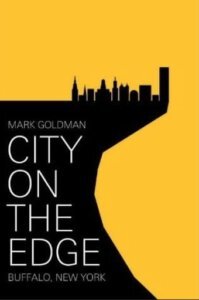
Handwritten or Hand-drawn
The look of a handwritten book cover has an indie, approachable appeal. An illustrated cover offers personality, individuality, and warmth that photography sometimes lacks. The hand-drawn artwork can set the tone or offer some hints about the contents, and definitely attract attention.
Here are some fun examples of handwritten or hand-drawn book cover designs:
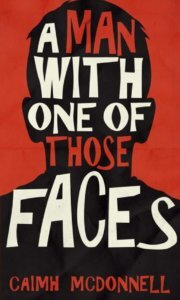

Illustrated
While few cover designers actually hand illustrate their cover art, the look of illustration, produced via computer design software, is very popular. Illustration gives the book a more personal, unique appeal.
Here are some examples of illustration-based cover art:

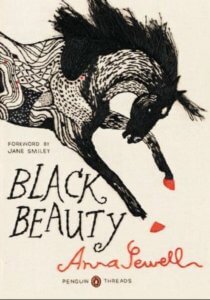
Abstract
Think Picasso-esque when it comes to using an abstract book cover design that is sure to grab the consumer’s attention and tell a story.
Abstract art blends artistic and modern elements. The abstract designs can be pulled from 1930s art deco to 1960s pop art, so the effect is not necessarily modern but harkens to a period when the style was indeed quite modern.
Check out these excellent uses of abstract art to inspire your self-published book cover:
This obscure design combined with the book’s title offers just enough information to get you to click on the link and learn more.
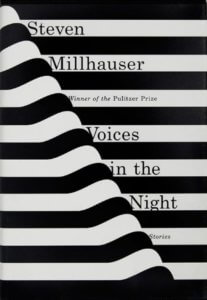
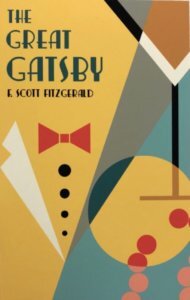
Layered
Layering designs is a technique employed in a variety of genres, including romance. Layers create a very cool, artistic effect that will certainly catch a reader’s attention.
Using programs like Adobe InDesign can help you attain these kinds of creative layered cover designs:


Photography
Using a photo is very common in certain genres, such as romance, suspense, thrillers, and biographies. Photos can be used in familiar, expected ways, but also employed in unique ways that can grab attention. Using photos in your cover art does not have to involve boring stock images.
Look at the clever use of photography in these examples to give you some ideas for your self-published book cover:


Artsy
Nothing grabs your attention faster than a cover that uses bold artistic design elements. Artistic book covers work best, of course, for nonfiction art books or books covering avant-garde topics.
Here are two such examples:


Where To Find Inspiration for More Book Cover Designs
If you are still in search of book cover design inspiration, there is plenty to be found with a little online searching. It is always advisable to visit Amazon to check out the competition in your genre. There you can look at sales statistics and review counts to get a feeling for which cover designs might have had a positive impact on sales. This can provide some useful guidance in the early stages of having your book cover designed.
Another great source of inspiration is Pinterest. There are multiple Pinterest boards that have assembled examples of exceptional book cover designs. Viewing these can help inspire your own unique book cover design idea.
What Makes a Great Book Cover?
It shouldn’t come as a surprise to learn that there are certain design elements to consider when designing your self-published book cover. Stick to these for the best result:
- Use stock photos carefully. Check your genre to see if the image has already been used for another author’s book cover.
- Stick to two fonts. A cover can get very busy and amateurish when more than two fonts are used.
- Select a color story. At the outset of designing your cover, select a palette with complementary colors and tones.
- Balance the elements. Creating a visually appealing cover design requires a careful balance of typography, images, and other design elements.
What Makes a Bad Book Cover Design?
After viewing some pretty amazing book cover design inspiration, it might help if you can differentiate the good from the not-so-hot book covers. Book cover designers operate under a collection of best practices guidelines, that is, the rules of the road for avoiding book cover potholes. For example, where good cover design involves a clear focal point, a constrained use of fonts, and an avoidance of over-designing the cover. Bad cover design includes the following no-nos:
- Creating a design that does not translate to a readable thumbnail image
- Using poorly selected color combinations
- Using special font effects, like shadow
- Using dated or just plain bad fonts
- Applying gradients to fonts
The most important rule of thumb for avoiding a bad book cover design is coming up with a creation that does not look obviously amateurish or like a DIY job. Here are a couple examples of lousy book covers:
This cover is murky and confusing and would be exceptionally difficult to read as a thumbnail.

What can we say but that this represents a predictable mishmash of romance genre elements?

Ways To Get an Amazing Book Cover
Reaching for the heights of creative artistry may be outside an author’s wheelhouse. If that is the case, consider these sources for design assistance:
- Use a Professional Book Cover Designer. A professional cover designer will be your best bet. These experts are creative individuals and very adept at using computer software programs to make the most of your design ideas.
- Try Online Design Software. If you have a background in tech or design, go ahead and learn the nuanced design capabilities of programs like Adobe InDesign, Canva, Adobe Spark, or Book Brush.
- Ask an Art Student. Your local university or art college will have students eager to take on your project to build their portfolio. Call the art departments and ask for guidance in obtaining a student’s help with your self-published book cover design.
Start Brainstorming With Professional Cover Designers
Selecting the perfect mix of artistic elements for self-published book covers can begin to feel like an overwhelming task. To help ensure that your book cover makes the perfect impression on prospective readers, why not enlist the artistic talent at Gatekeeper Press?
Contact the team today to get started!


